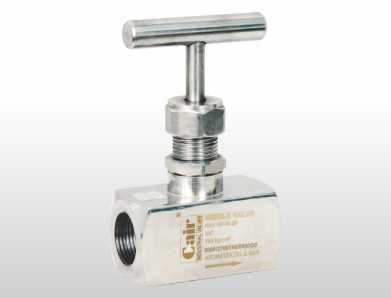If you’re looking for a valve that can give you precise control over fluid flow, a needle valve may be the answer. In this blog post, we’ll cover everything you need to know about needle valves, from how they work to the benefits of using one. We’ll also provide some tips on how to select the right needle valve for your application.
What is a needle valve?
A needle valve is a type of valve used to control the flow of fluid through a narrow opening. The name comes from the fact that the valve has a needle-like rod that is used to open and close the valve.
Needle valves are often used in applications where precise control of the flow rate is required, such as in laboratory and industrial settings. They are also commonly used in engines and other devices where fuel needs to be metered out carefully.
Needle valves work by screwing the needle-like rod into or out of a seat. This action opens or closes the valve, allowing for more or less fluid to flow through. The degree to which the valve is opened or closed can be controlled precisely. Making needle valves ideal for applications where precise flow control is required.
There are many different types of needle valves available on the market, each designed for specific applications. Choosing the right type of needle valve for your needs is important to ensure that it will function properly and provide the level of control you require.
What are the benefits of using a needle valve?
The main advantage of a needle valve over other types of valves is its precision. The small size of the needle means that it can be moved very precisely, allowing for very fine control over the flow of fluid. 
Another advantage of needle valves is that they have a relatively low pressure drop across them. This means that they can be used in applications where it is important to minimize pressure loss. Such as in piping systems carrying liquids at high pressures.
Another benefit of using a needle valve is that they are less likely to cause leaks. This is because the needle forms a seal with the seat, which prevents fluid from flowing around it. In contrast, other types of valves (such as ball valves) have gaps between the moving parts and the body of the valve, which can allow fluid to leak through.
Needle valves are also relatively easy to maintain and repair. This is because they have few moving parts, and the parts that do move are not subject to wear and tear in the same way as other types of valves. As a result, needle valves typically have a long lifespan and require little maintenance.
One final benefit of using a needle valve is that it can be used with a wide range of fluids, including both liquids and gases. This makes them suitable for use in a wide range of applications, from domestic plumbing to industrial settings.
How can I select the right needle valve for my application?
When selecting a needle valve, the first thing to consider is the application for which it will be used. The next thing to consider is the type of fluid that will be flowing through the valve. Needle valves are not recommended for use with fluids that contain solids or particles. As these can become lodged in the valve and cause it to malfunction. Other factors to consider include the pressure and temperature of the fluid. As these can affect the performance of the valve.
Once the application and type of fluid have been considered. It is then possible to select a needle valve that is suitable for the specific application. When choosing a needle valve, it is also important to consider the maintenance and repair requirements. As mentioned above, needle valves are relatively easy to maintain and repair thanks to their simple design. However, it is still important to choose a valve that can be easily serviced and repaired if necessary.
Also, read Here is Everything You Need to Know About Industrial Valves
